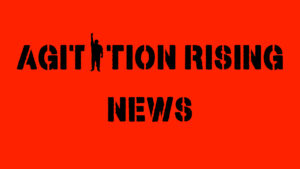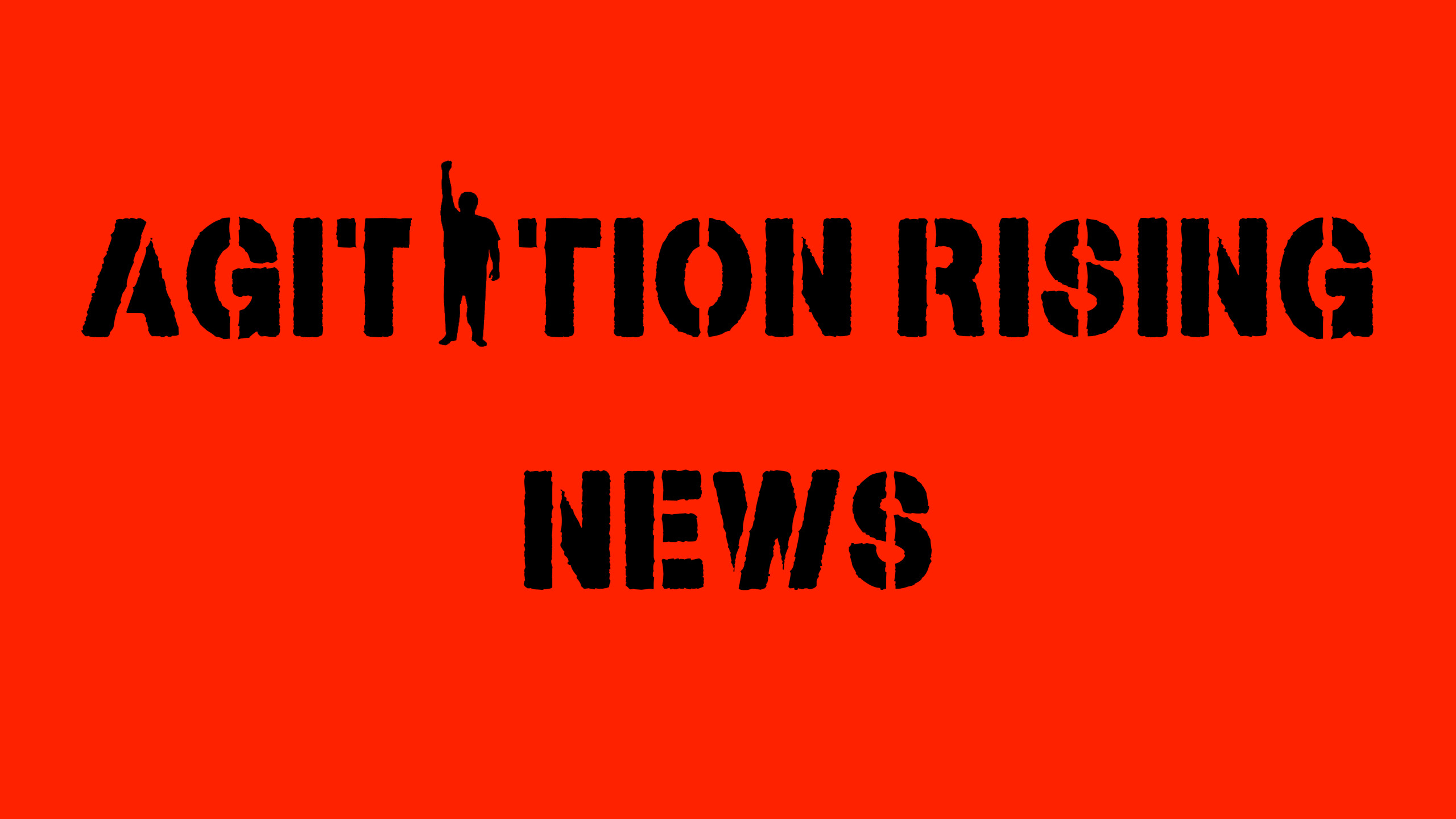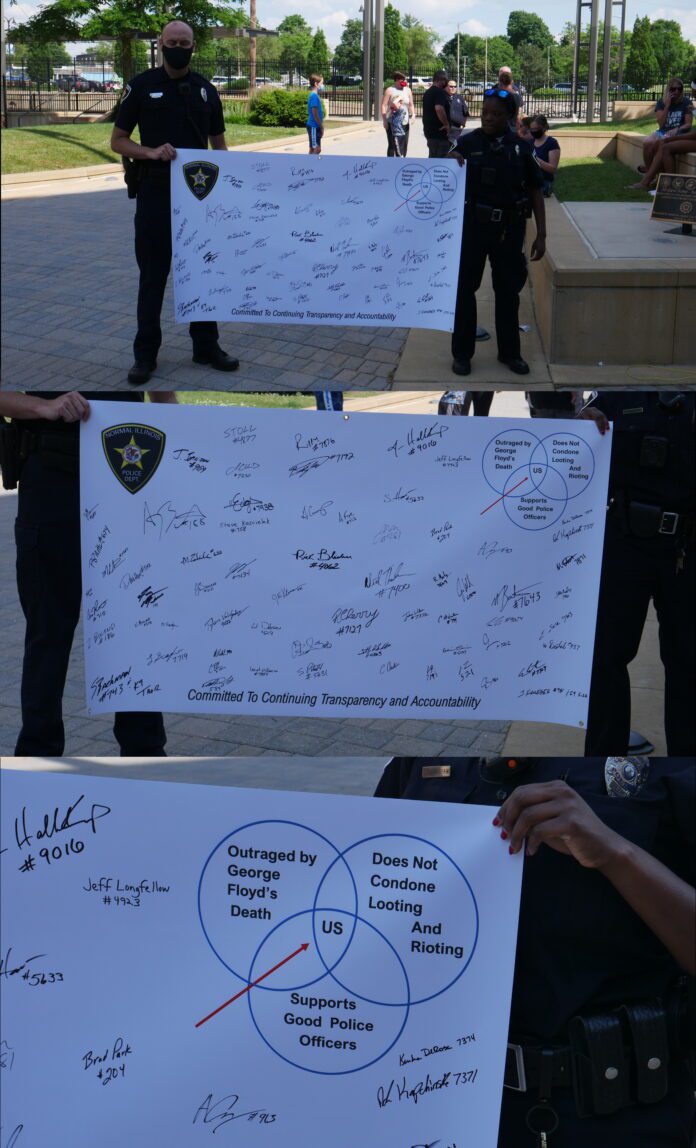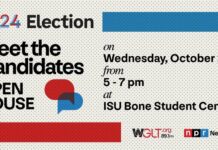For a whole eight minutes and thirty-four seconds, police politely marched on the sidewalk in Uptown Normal in utter disgust of police brutality. They then took a 46 second moment of silence in memory of George Floyd.
No one was inconvenienced in any way.
Organized by the Normal, IL Police Department, “United Against Police Brutality” brought together ISU, State, and Normal Police all who said they absolutely condemn what occurred to George Floyd by four former police officers.
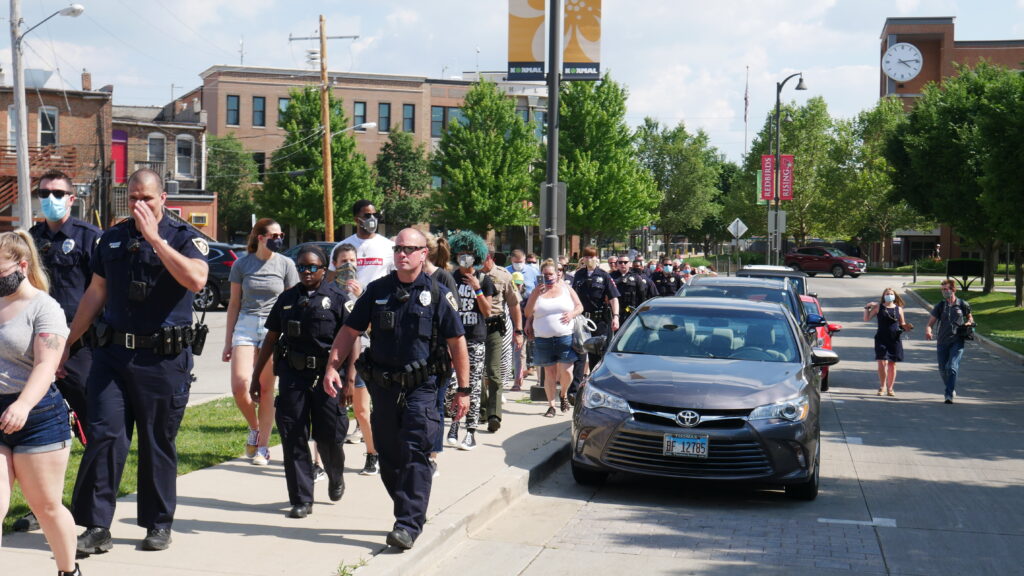
“We are about bringing the police & community together.” Normal Police Chief Rich Bleichner said. “Today, our walk is a visual statement that excessive police action, like what happened to George Floyd in Minneapolis and things that have happened in other cities across this nation, have no place in policing.”
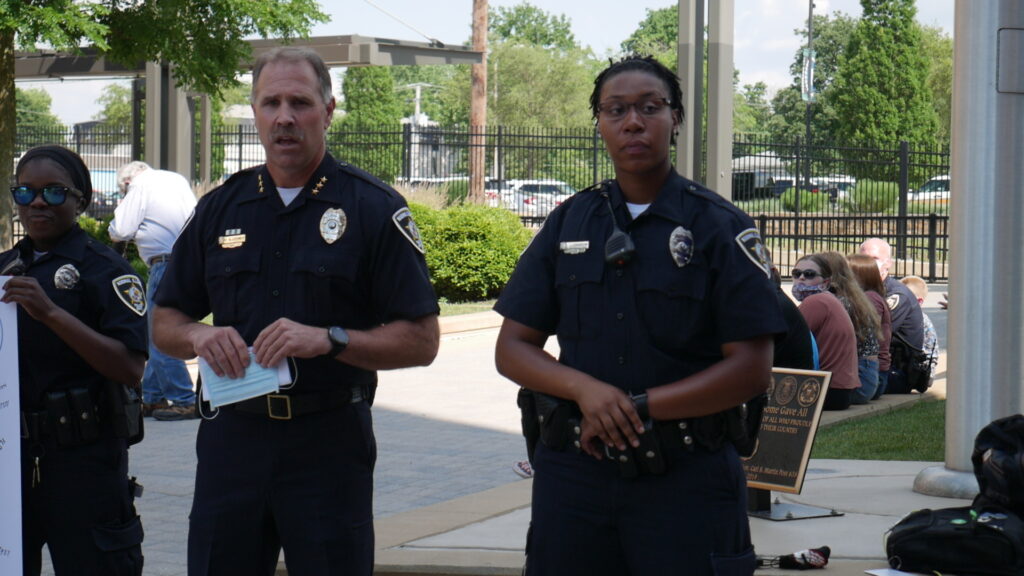
Officer Jasmine Johnson convinced Chief Bleichner to perform the short & symbolic event. “In light of everything that is going on in the world today, it is important that we address it and talk about it and get some understanding; because, it is in these moments where silence is deafening… I wanted to participate in something like this because I believe we are a department that actually takes steps towards the change that’s necessary. As a department that prioritizes community policing and building trust in the community, this is something we can no longer remain silent about. Because it’s issues like we saw with George Floyd, Breonna Taylor, and Eric Garner, and many other cases that occur that creates distrust not only with minorities but the entire community as a whole. It’s unfortunate during these times, when these incidents occur, everyone that puts on a badge is put in a box, and we’re looked at as the same.”
“I think these type of events do not occur in vain, these demonstrations show that the department is open to change, to being transparent with the community. But, most importantly, it shows the department is committed to accountability, and it’s making progress towards bridging the gap between minorities & police.”
After the event, I spoke with Officer Johnson. I asked her what she thought about the assertion that many ‘good’ police are looking the other way for the ‘bad’ ones which makes the ‘good’ ones complicit. “I mean, you never know why someone is silent about this issues. Maybe they have a different way of showing their stance. Maybe the go in the street and try to be the change they wish to see as opposed to taking a political stance. You know, so I don’t judge anyone’s actions as to them being silent. But, I do know that in moments like this, it’s not recommended to be silent, because silence at this point–it’s almost like you’re condoning it.”
I also queried whether she thought there was fear amongst ‘good’ cops to speak out. She said, “I mean, I can’t speak for all [departments]. Just from my experience, we hold each other accountable here. We don’t have a problem with speaking on someone doing something wrong. I don’t think that’s an issue here.”
.
According to a WGLT:
NPD averages between 50 and 80 incidents per year of an officer using force above standard handcuffing, said Chief Rick Bleichner. Those incidents are a small percentage of the 8,500 to 12,000 incidents each year involving police enforcement action of some kind, he said. (The department in 2017 greatly expanded the types of incidents that required officers to file a response-to-resistance report. That year, the number of incidents jumped from 17 to 83.)
In 2019, half of the 50 responses to resistance involved an officer’s use of physical force, like their hands, fists, or feet, according to an annual report prepared by NPD. Another 19 were a displayed firearm. Five Tasers were displayed. Twenty-eight of the 50 involved a black person allegedly showing resistance, according to the report.
All were considered justified responses internally.
“We prefer to catch things small,” Bleichner said. “We look for opportunities when maybe something was handled within our policy, but there are opportunities for improvement or a teaching moment. Things happen quickly in tense situations. Hectic, at best, at times.”
Chokeholds in Illinois are currently banned unless deadly force is justified. “In Normal, two of the 22 complaints received in 2019 were related to allegations of excessive force. In both instances, the officers were determined to have acted properly.”
I spoke with Chief Bleichner briefly about various proposals to increase police accountability. Previously, Bleichner stated to the Pantagraph, “Defunding [police] would do a disservice to what we’re trying to accomplish in our community.”
I asked what he thought about Illinois Attorney General Kwame Raoul’s proposal to license officers in Illinois. “I think it’s a good step as far as professionalism. This, to me, seems to be the next logical step.”
When asked his position on abolishing qualified immunity, he said, “I wouldn’t be in support of that. I think there is time when officers or staff respond to situations, and, a lot of times, it is hectic at best. Given the types of training, given the responsibilities in those situations, I don’t think that would be good thing for anybody.’
On the question of a civilian review board with the power to investigate & punish officers, he didn’t think it was necessary because his department already has oversight by supervisors to catch bad actors. Though, he is open to civilian comments.
When asked about police union abolition, he supported police unions saying NPD has a very good relation with its union, and they work tirelessly to help their officers. “They want the same things as the community wants.” he said. “None of our officers want to work alongside an officer who is dishonest, who uses excessive force, who is not up to the standards that each and every one of them.”
Bleichner did not support making the police chief position an elected position. When the question arose about who should be investigating officers, he believed it should be other law enforcement agencies.
This article was originally published on Strangecornersofthought.com.
